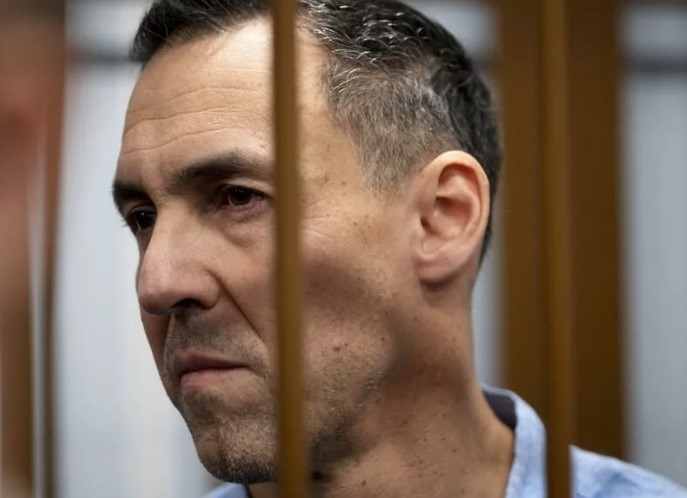Russian authorities have escalated legal actions against French political analyst Laurent Vinatier, raising the severity of the charges from failing to register as a “foreign agent” to espionage.
Detention of Vinatier and First Conviction
Vinatier, who had been working with the Geneva-based Centre for Humanitarian Dialogue, was first detained in Moscow during the summer of 2024. The authorities accused him at that time of collecting information considered sensitive to Russia’s security. They specifically said he did this without registering under the country’s “foreign agent” law, which requires certain individuals and organizations involved in political or information-related activities to disclose their ties to foreign entities.
In October 2024, he admitted guilt to the earlier accusations. The court then gave him a three-year sentence in a penal colony. Judges handled the case under a “special procedure,” which often allows a lighter sentence when the defendant accepts the charges without a full trial.
Russian security forces arrest ex-VEB official in Dubai on charges of espionage and fraud
However, despite this ruling, officials kept Vinatier in Moscow’s SIZO-7 detention center, where he had been held since his arrest. Normally, authorities transfer convicted individuals to a penal colony to serve their sentence, but in his case, they did not take that step. This unusual situation raised questions about whether Russian authorities were considering additional legal actions.
Vinatier Moved to Lefortovo Prison
Earlier this August, the Telegram channel VChK-OGPU reported that authorities had moved Vinatier from SIZO-7 to Lefortovo prison in Moscow. Lefortovo stands as one of the most secure prisons in Russia and holds individuals facing the most serious charges, including treason and espionage.
Observers regarded this transfer as significant because Lefortovo does not operate as a regular detention facility. The prison’s history dates back to Soviet times, and Russian security services have long associated it with their investigations. When authorities hold suspects there, they often signal that they are pursuing much more severe allegations.
Emotional Espionage: Russia’s New Spy Tactic Exposed in Kostiantynivka Traitor Arrest
On August 20, the independent Russian news outlet Mediazona reported that Moscow’s Lefortovo District Court had received a formal motion from prosecutors to extend Vinatier’s detention. This motion directly connected to new espionage charges that investigators had filed against him. Court officials scheduled a hearing on this matter for August 25.
Russian security services have not yet released details of the new charges. Without these specifics, observers cannot clearly determine what exact activities authorities accuse Vinatier of committing that would qualify as espionage rather than the earlier offense of gathering information without proper registration.
Escalation of Legal Pressure
The move to file espionage charges represents a sharp escalation from the initial accusations against Vinatier. Espionage is one of the most serious charges in Russian criminal law and carries much heavier consequences than violations of the “foreign agent” legislation.
Mediazona’s report highlighted that the new legal step comes while Vinatier’s previous sentence of three years had not yet been fully enforced. Instead of serving his time in a penal colony, he has remained in high-security detention facilities, suggesting that Russian authorities were preparing for more severe proceedings.
Vinatier’s representatives have so far refused to comment on the situation. The lack of an official statement leaves the public with limited information about his defense or perspective on the case. Similarly, Russian security services have kept silent about the evidence they may have gathered.
Russian Sensors Target UK’s Nuclear Submarines in Undersea Espionage Plot
The case has also drawn attention because it comes shortly after another high-profile legal action in the region. Former Moldovan Army Chief of Staff Igor Gorgan was charged in a treason case earlier this summer. On June 13, Moldova’s Prosecutor’s Office for Combating Organized Crime and Special Cases announced the case against him, confirming that he had complied with court summons.
Together, these developments underline the broader pattern of authorities bringing serious charges against figures whom they accuse of acting against state security in Russia and neighboring countries.
As of now, officials have confirmed only a few details: they transferred Vinatier to Lefortovo prison, they filed new espionage charges against him, and Moscow’s Lefortovo District Court will review his detention extension request on August 25. Until then, he remains in custody under the strict conditions of one of Russia’s most notorious prisons.
